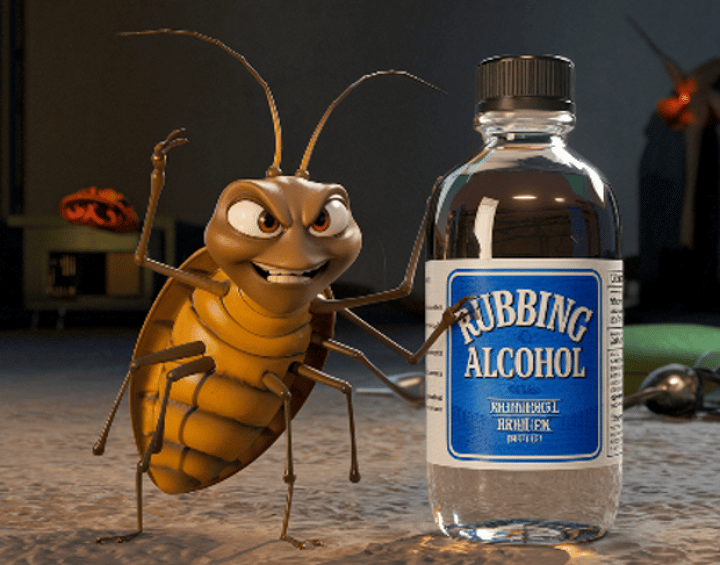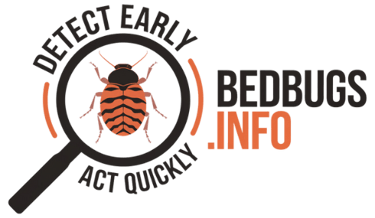Does Rubbing Alcohol Kill Bed Bugs?
Does rubbing alcohol kill bed bugs? Learn how it works, its limitations, and safer, more effective alternatives for eliminating bed bug infestations.
DRZ
12/11/20243 min read
Bed bugs are among the most frustrating pests to deal with, leaving homeowners desperate for quick and effective solutions. Among the many DIY remedies touted online, rubbing alcohol often comes up as a potential weapon against these blood-sucking nuisances. But does rubbing alcohol really kill bed bugs, or is it another myth?
In this article, we’ll explore the science behind rubbing alcohol as a bed bug killer, its effectiveness, limitations, and safer alternatives to consider.
Can Rubbing Alcohol Kill Bed Bugs?
Yes, rubbing alcohol, also known as isopropyl alcohol, can kill bed bugs—but only under certain conditions. Here’s how it works:
Disruption of Their Outer Shell
Rubbing alcohol acts as a solvent, dissolving the protective outer layer of bed bugs. Without this layer, the bugs dehydrate and die.Dehydration of Eggs and Nymphs
Alcohol can also kill bed bug eggs by drying them out, preventing them from hatching.Repelling Bed Bugs
The strong scent of rubbing alcohol may temporarily deter bed bugs from laying eggs in treated areas.
While rubbing alcohol can kill bed bugs on contact, it’s not as effective as you might hope for eliminating an infestation.
Why Rubbing Alcohol May Not Be Effective
Although rubbing alcohol has some bed bug-killing properties, it’s far from a perfect solution. Here are the main reasons:
1. Requires Direct Contact
Rubbing alcohol only works if it comes into direct contact with the bed bugs. Since these pests hide in tiny crevices and hard-to-reach places, treating every individual bug is nearly impossible.
2. Limited Effectiveness
Studies, including those conducted by Rutgers University, show that even high concentrations of rubbing alcohol kill less than half of bed bugs in most scenarios.
3. Short-Lived Repellent
While the smell of alcohol may repel bed bugs temporarily, it doesn’t provide long-term protection or prevent them from returning once the scent fades.
4. Flammability Risk
Rubbing alcohol is highly flammable. Spraying it on furniture, mattresses, or carpets creates a significant fire hazard. There have been documented cases of fires caused by improper use of rubbing alcohol for pest control.
How to Use Rubbing Alcohol Safely
If you choose to use rubbing alcohol as part of your bed bug control strategy, follow these safety precautions:
Use High-Concentration Alcohol
Opt for isopropyl alcohol with a concentration of 70% or higher for better effectiveness.Target Known Infested Areas
Spray directly on visible bed bugs, eggs, and areas where they hide, such as mattress seams, furniture joints, and baseboards.Avoid Overapplication
Do not saturate large areas or fabrics, as the alcohol’s flammability increases with excessive use.Ventilate the Area
Use alcohol in a well-ventilated space to reduce the buildup of potentially harmful fumes.
Why Rubbing Alcohol Isn’t a Long-Term Solution
Rubbing alcohol might kill some bed bugs on contact, but it’s not a reliable method for controlling an infestation. Bed bugs are masters at hiding and reproducing quickly. A single female bed bug can lay up to 250 eggs in her lifetime, making it nearly impossible to eliminate them all with rubbing alcohol alone.
Additionally, alcohol doesn’t address the root cause of the infestation, nor does it prevent bed bugs from returning.
Effective Alternatives to Rubbing Alcohol
If you’re dealing with a bed bug infestation, consider these safer and more effective alternatives:
1. Heat Treatment
Bed bugs cannot survive temperatures above 120°F (49°C). Use a dryer on high heat for infested clothing and bedding, or consult professionals for whole-room heat treatments.
2. Encasements
Mattress and box spring encasements trap bed bugs inside, cutting off their food supply and preventing further infestations.
3. Diatomaceous Earth
This natural powder dehydrates and kills bed bugs when they crawl through it. It’s a non-toxic option that can be applied around baseboards, cracks, and furniture.
4. Professional Pest Control
For severe infestations, professional exterminators can use a combination of chemical and non-chemical treatments to effectively eliminate bed bugs.
The EPA’s Recommendations for Bed Bug Control
The Environmental Protection Agency (EPA) emphasizes the importance of an integrated pest management (IPM) approach, which combines multiple methods for effective bed bug control:
Heat or Freezing Treatments: Wash clothing and bedding in hot water or freeze items for several days to kill bed bugs.
Vacuum Regularly: Use a vacuum with a HEPA filter to remove visible bugs and eggs. Dispose of the vacuum bag immediately in a sealed plastic bag.
Reduce Clutter: Minimize hiding spots for bed bugs by keeping your home tidy.
Use Bed Bug Interceptors: Place these devices under bed legs to prevent bed bugs from climbing up.
Natural Remedies: Do They Work?
Essential oils, such as oregano oil and commercial products like EcoRaider, have shown some promise in repelling bed bugs under lab conditions. However, their effectiveness in real-world scenarios varies, and they may not eliminate a full infestation.
Final Thoughts:
So, does rubbing alcohol kill bed bugs? Yes, but only to a limited extent and under specific conditions. While rubbing alcohol can kill bed bugs and their eggs on contact, it’s not a reliable or safe long-term solution for dealing with infestations.
Instead of relying solely on rubbing alcohol, consider combining proven methods like heat treatment, encasements, and professional pest control. These strategies provide a more comprehensive and effective way to eliminate bed bugs and regain your peace of mind.


Call 1-888-394-0227 (Toll Free)
Speak to a Pest Control Professional in Your Area
